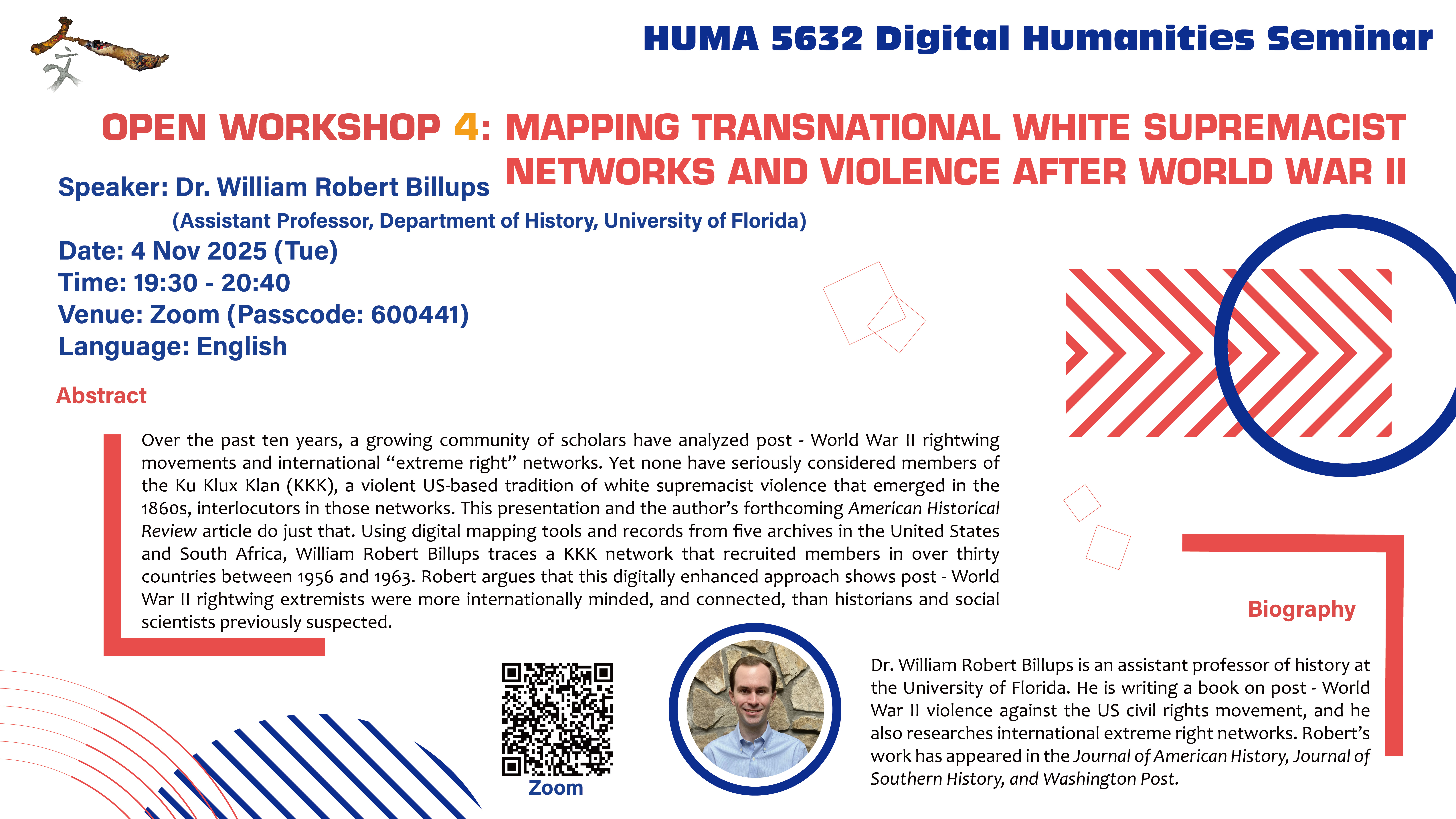Abstract
Over the past ten years, a growing community of scholars have analyzed post–World War II rightwing movements and international “extreme right” networks. Yet none have seriously considered members of the Ku Klux Klan (KKK), a violent US-based tradition of white supremacist violence that emerged in the 1860s, interlocutors in those networks. This presentation and the author’s forthcoming American Historical Review article do just that. Using digital mapping tools and records from five archives in the United States and South Africa, William Robert Billups traces a KKK network that recruited members in over thirty countries between 1956 and 1963. Robert argues that this digitally enhanced approach shows post–World War II rightwing extremists were more internationally minded, and connected, than historians and social scientists previously suspected.
Biography
Dr. William Robert Billups is an assistant professor of history at the University of Florida. He is writing a book on post–World War II violence against the US civil rights movement, and he also researches international extreme right networks. Robert’s work has appeared in the Journal of American History, Journal of Southern History, and Washington Post.
Zoom passcode: 600441
